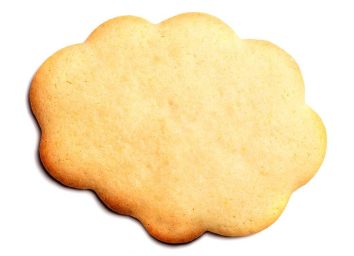What Happens to Your Body When You Eat Bread Every Day
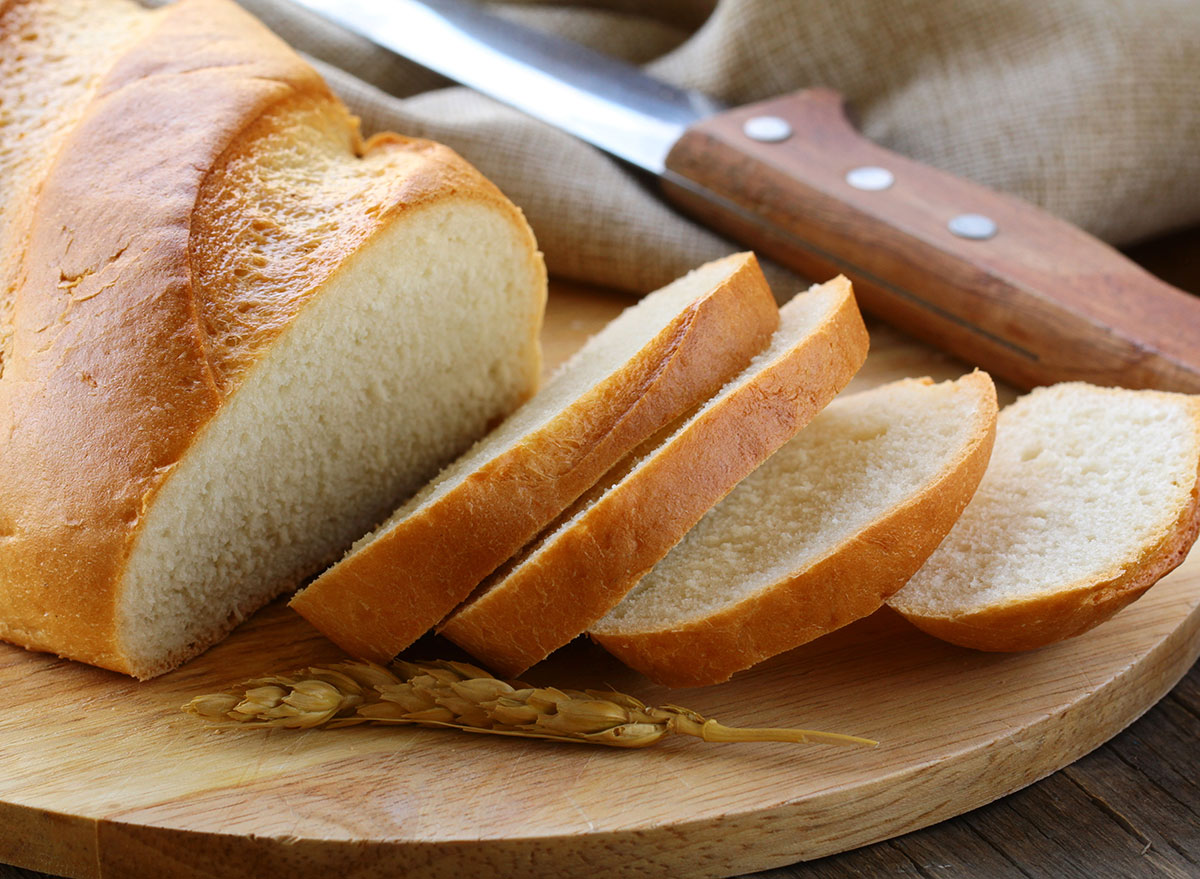
No matter how you slice it, bread is a staple of the Western diet. From toast at breakfast to sandwiches at lunch to the breadbasket at dinnertime, it's not difficult to eat this standby ingredient every day (or even at every meal). Over the years, though, particularly as low-carb and gluten-free diets have grown in popularity, bread has gotten a bad rap. But is it really a bad thing to eat bread every day?
That all depends—primarily on the variety of bread you choose, and how much of it you consume.
You've likely heard that whole grains (and therefore whole-wheat bread) are better for you than white. The Dietary Guidelines for Americans and the Academy of Nutrition and Dietetics encourage Americans to make half our grains whole grains—and for good reason. Whole grain bread is made with the entire intact wheat kernel, which means it retains all its fiber and important nutrients like iron, zinc, and B vitamins. White bread, on the other hand, is made by stripping the wheat kernel of its nutrient-rich germ and bran. This may make for a tastier, more shelf-stable product, but cuts back on nutritional value.
While eating whole wheat bread on a daily basis may come with plenty of benefits, the same can't necessarily be said for white. Here's a look at the possible health effects of eating bread every day.
It could spike your blood sugar.
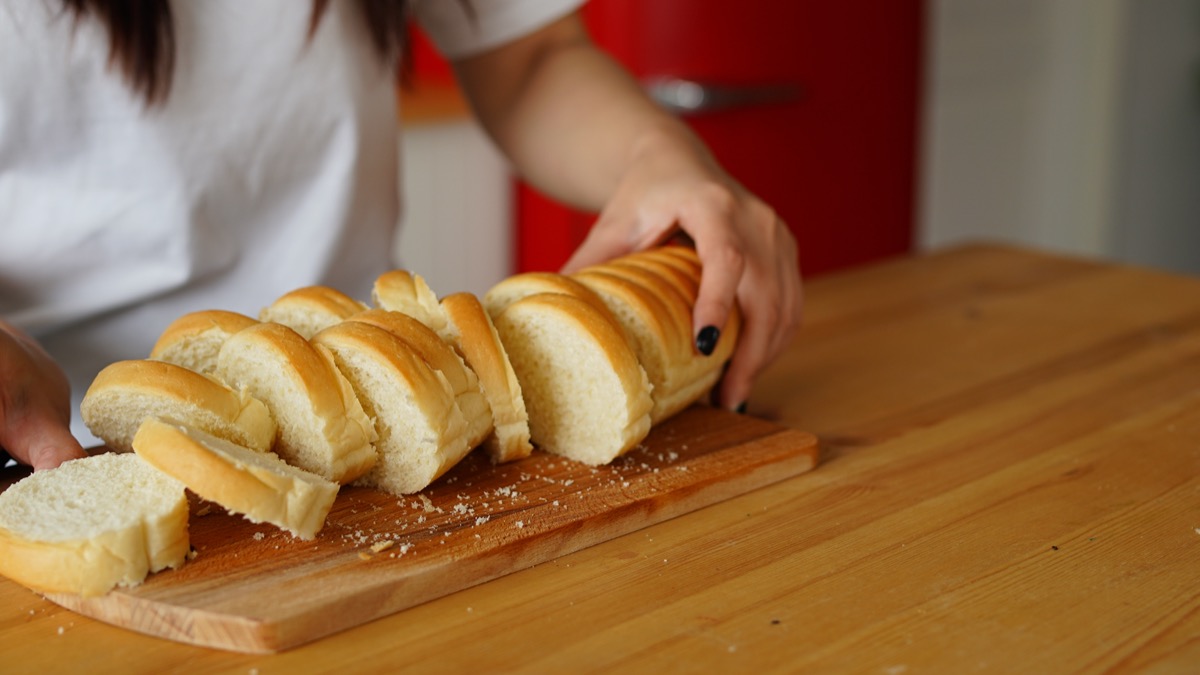
If you're watching your blood sugar, getting your daily (white) bread isn't advisable. The high doses of simple carbohydrates in refined grains get absorbed into the bloodstream much more quickly than the complex carbs in whole wheat, leading to a rapid uptick in blood sugar. According to Harvard Health, powerful blood sugar spikes from eating high-glycemic foods can increase the risk of type 2 diabetes, heart disease, and overweight.
You may gain weight.

When a basket of baguettes arrives at your table before a restaurant meal, mindful consumption is key. Simple carbs (like those in white bread) are notorious for not filling you up—so it's all too easy to down several slices and still loads up on a full meal afterward. Over time, overdoing it on any kind of bread can lead to weight gain.
However, it's important to remember that a single food isn't usually the culprit in putting on pounds. "Weight gain does not result just from eating white bread. Rather, weight gain is the result of eating more calories than our bodies use for energy," says dietitian Kris Sollid, RDN, Senior Director of Nutrition Communications at the International Food Information Council (IFIC).
It could harm your microbiome
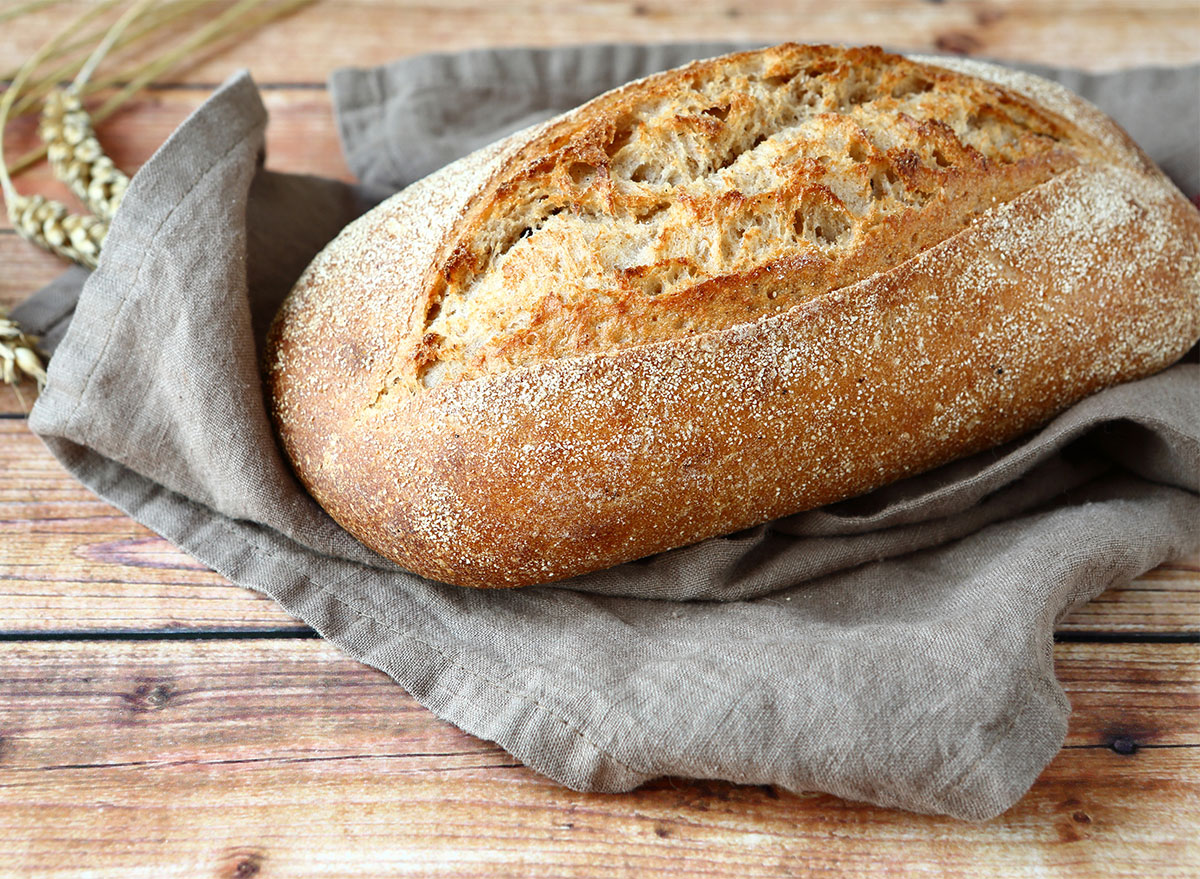
If lower-fiber white bread consistently edges out whole wheat in your diet, it may spell trouble for your microbiome, aka the colony of bacteria in your gut. Research shows that a diet low in whole grains is associated with imbalances in the microbiome. These imbalances have been linked to irritable bowel syndrome and inflammatory bowel disease. On the flip side, other studies show that choosing whole wheat bread, which is rich in the prebiotic fiber that feeds a healthy microbiome, has positive effects on gut bacteria.
Since a thriving microbiome may lead to everything from better mental health to reduced risk of heart disease, it's smart to choose whole wheat bread over white at least half the time.
It can add vitamins and minerals to your diet.
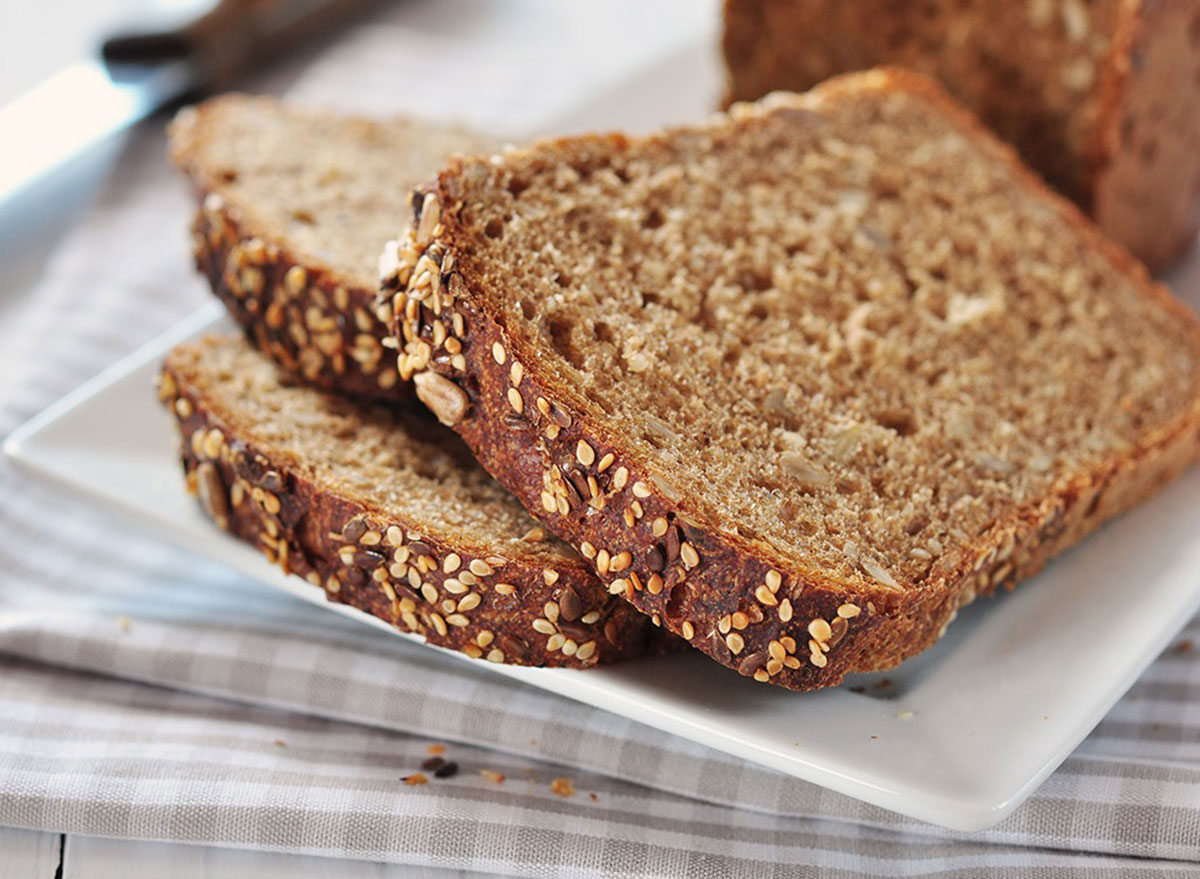
Eating white bread isn't all bad news! This sandwich staple does come with some silver linings. When the refining process strips wheat of its natural nutrients, most bread producers "enrich" these nutrients back into their product—sometimes even going the extra mile by fortifying bread with extra micronutrients. Commonly added nutrients include folic acid and iron, both of which play important roles in health.
Getting enough folic acid is especially critical for pregnant women. "Folic acid reduces the risk of neural tube defects in newborns," says Sollid. "This is the primary reason that in 1998, the U.S. Food and Drug Administration required that folic acid be added to enriched grain products such as bread, pasta, rice, and cereal."
And don't overlook the importance of iron! "Eating iron-rich foods maintains optimal oxygen delivery to our tissues and organs and protects against iron deficiency anemia."
It'll fuel your body and brain with carbs
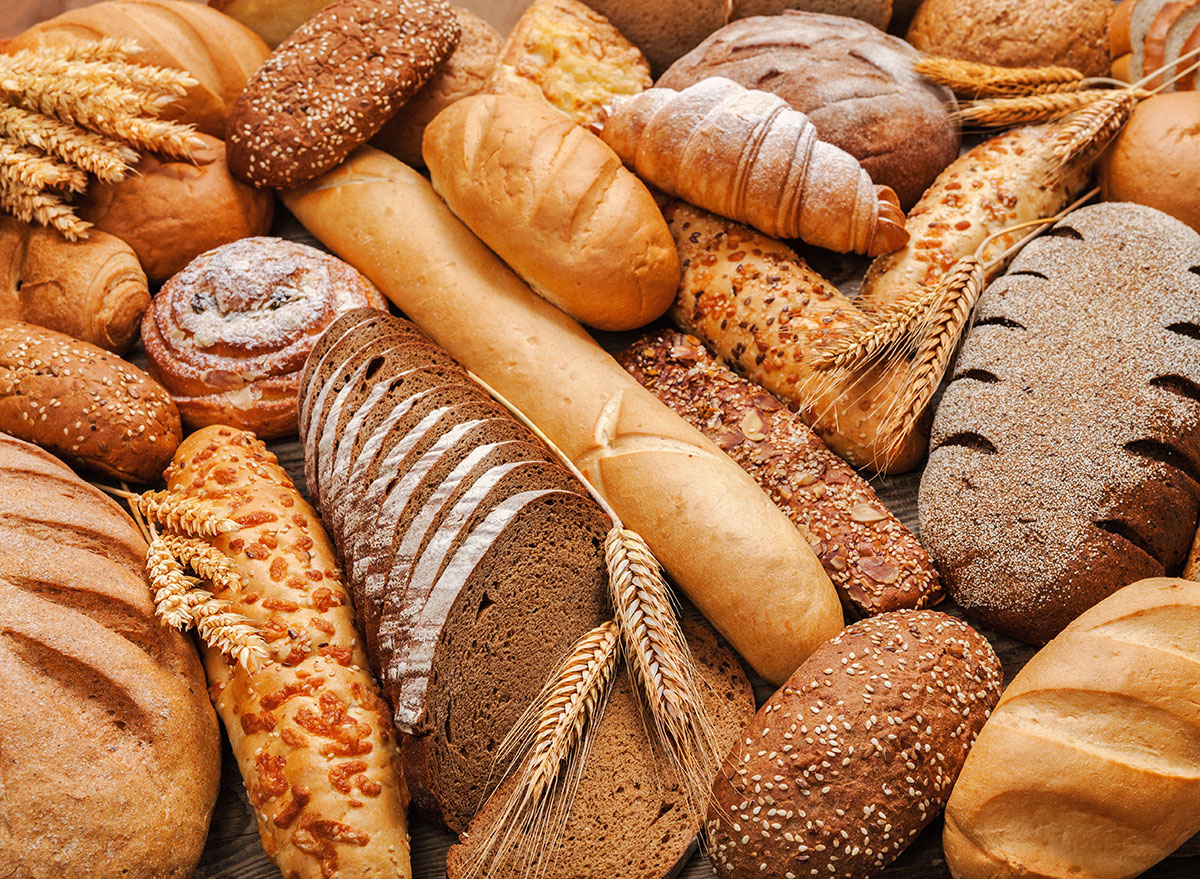
Despite their dubious reputation, carbohydrates aren't actually an enemy to your health. In fact, these much-maligned macros are the body's preferred energy source, providing fuel to your trillions of cells. Meanwhile, the brain runs primarily on glucose, carbs' most simplified form. Since the average slice of bread contains around 15 grams of carbs, eating it regularly can help power your everyday activities.
While whole wheat bread, with its more satiating complex carbs, will keep you fuller longer, a serving of white bread on occasion isn't going to sabotage your diet. "Some would have you believe that all carbs (bread included) are created equal, and equally 'bad'" says Sollid. "The truth is that they're not. While plain white bread doesn't offer the same nutrition as 100% whole grain, it can still be a part of a healthy diet."
For even more nutrition tips, sign up for our newsletter.
